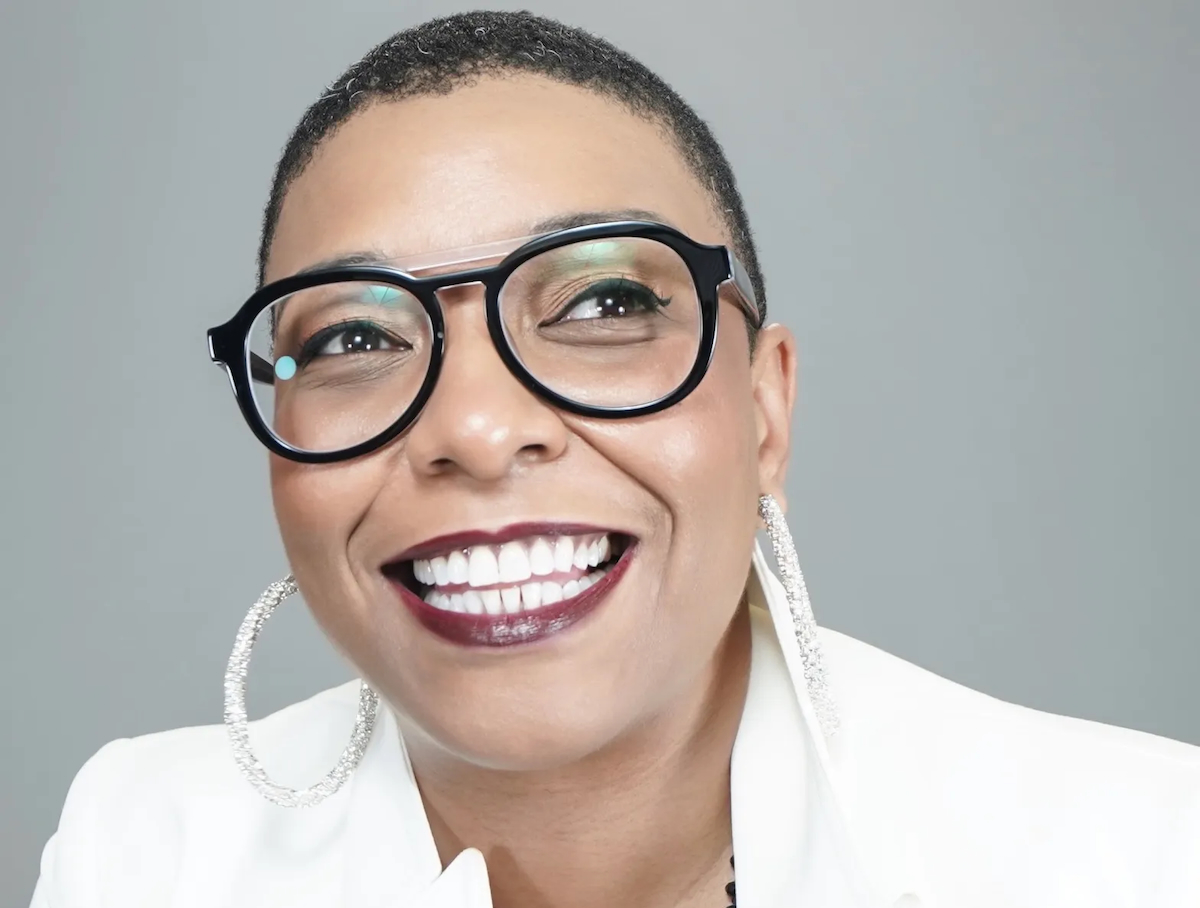Detroit curator, historian, educator, and former Hyperallergic fellow Kelli Morgan thought she was finished with museum work. Then a conversation with a co-worker compelled her to set out on a mission to document and share the rich legacy of the city’s Black artists.
This past July, Morgan launched the Black Artists Archive (BAA) — a nonprofit aimed at documenting the long history of Black arts in Detroit and sharing it with a wider audience.
Morgan’s latest pivot builds on her previous work in museums and academic institutions, where she has advocated anti-racist curation methodologies over the course of her curatorial and academic careers. After publicly resigning from her curatorial role at the Indianapolis Museum of Art (at Newfields) in 2022, citing racial discrimination, she went on to establish the anti-racist curatorial practice certificate at Tufts University, where she served as the inaugural director of Curatorial Studies. From last fall until this past July, she worked as senior curator and interim executive director of exhibitions at the Charles Wright Museum of African American History (CWMAAH) at Detroit’s Wayne State University.

“It’s hard to do [curatorial] work that centers Black voices and Black community. It has been a strenuous uphill battle,” Morgan said in an interview with Hyperallergic, adding that she faced “pushback” and “resistance” from institutions despite Diversity, Equity, and Inclusion initiatives.
“I was in this place where I was like, ‘I’m done with museums. I am done with academia, particularly art history,’” she added.
While at CWMAAH, Morgan worked on an archival research project for which she traced local artists’ ancestral ties and professional lineages. It was through this work that Morgan first encountered 90-year-old Marian Stephens last December.
“Mrs. Stephens is the matriarch of several of those lineages,” Morgan said.
A founding member of Arts Extended, one of the country’s longest-running Black arts organizations, Stephens is also a long-time teaching artist who helped mentor generations of the city’s artists including painter and muralist Sydney James.
Stephens “literally tailored programming for us even outside the school system,” James said in an interview.
Meeting Stephens helped Morgan realize that documenting the city’s Black art history went further than just one exhibition, requiring the efforts of a whole organization.
Morgan hopes to spotlight Detroit’s wealth of overlooked Black art history through BAA and break away from larger museum archival efforts, like the Getty Museum’s African American Art History Initiative, which she said can be more concerned with “canonical masters.”
“There are all of these artists that sort of slipped through the cracks,” Morgan said. “There’s this critical mass of Black artists in the city who are octogenarians. They’re 80, 85 plus … and they have these archives, right in the living room or in a garage.”
With the legacy of Arts Extended in mind, she tapped Stephens to serve on the nascent nonprofit’s Board of Advisors. A former Detroit high school art educator, Stephens told Hyperallergic she has spent decades documenting the city’s arts community and building an “unorganized” collection of articles, photographs, and other materials from her former students, many of whom “have been very successful in the art industry.”
But assembling an archive isn’t BAA’s only goal: Morgan also wants to develop programming in support of the city’s current arts and culture scene. She plans to create a curatorial incubator, host residencies, and acquire a building with a multiple-floor gallery space to display community-curated shows and works by resident artists.
“I’m really interested in being a place for them to cultivate their interdisciplinary or experimental idea,” Morgan said, adding that she wants to cultivate a “safe space” removed from “the sort of discrimination that happens in traditional institutions that can push younger curators to move toward freelance work.”
Morgan said when a major arts institution that she declined to name with a vacant African diaspora curatorial position asked Morgan why nobody was applying for the position, she replied, “You guys bring us in, but you do not create the structure to support us.”
“We are no longer willing to expose ourselves or subject ourselves to institutional harm,” Morgan continued.
With the intention of nurturing arts communities away from institutions, BAA’s programming will focus on emerging and mid-level artists, which Morgan hopes can serve as a model for similar nonprofits in the future.
On October 1, Morgan said BAA will begin digitizing the Arts Extended archive with the intention of publishing a virtual exhibition by July 2025.
“[BAA] is one way to broaden our community, and to have people know that all of us exist in one place,” Stephens said.

